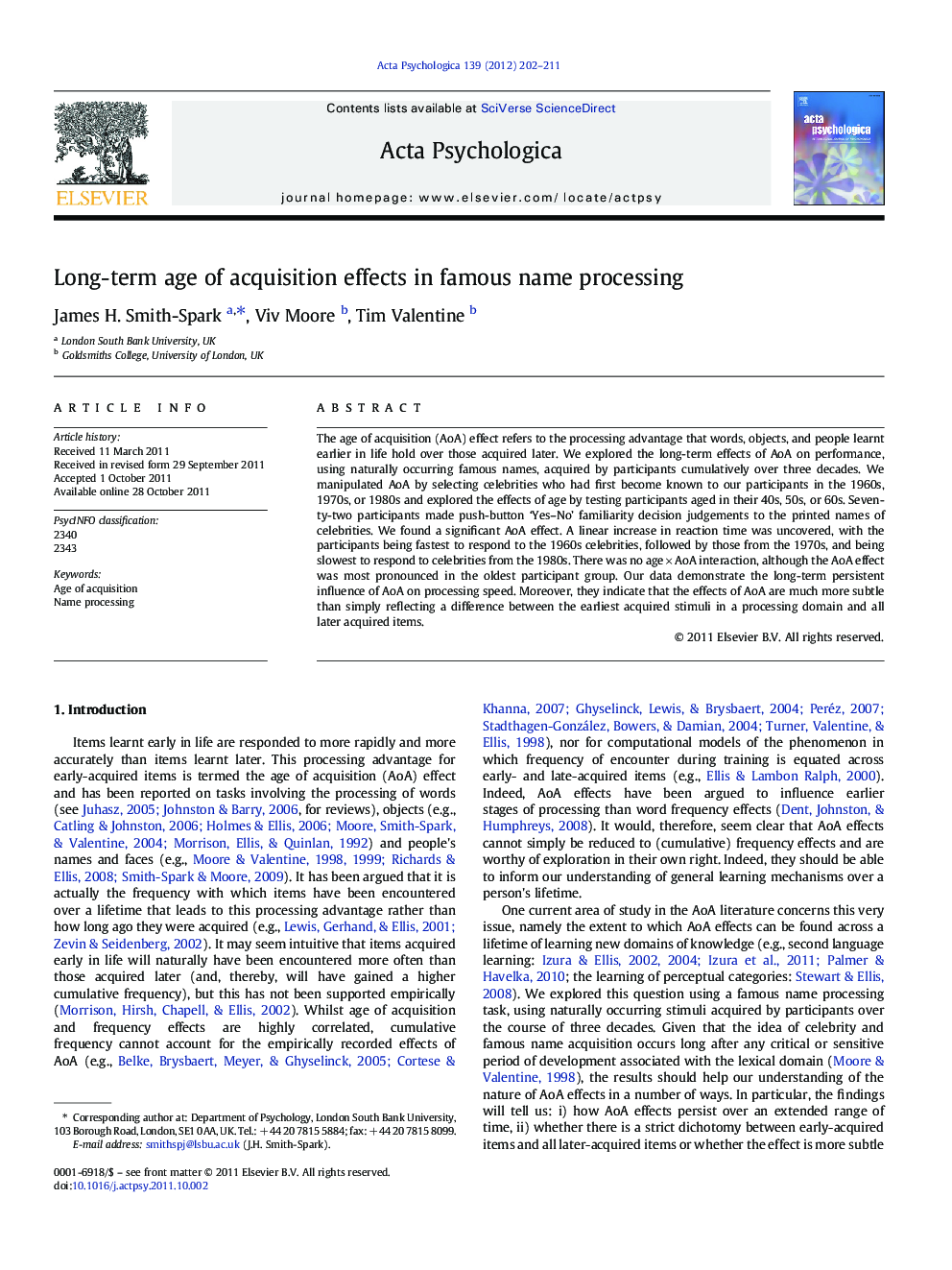| Article ID | Journal | Published Year | Pages | File Type |
|---|---|---|---|---|
| 920108 | Acta Psychologica | 2012 | 10 Pages |
The age of acquisition (AoA) effect refers to the processing advantage that words, objects, and people learnt earlier in life hold over those acquired later. We explored the long-term effects of AoA on performance, using naturally occurring famous names, acquired by participants cumulatively over three decades. We manipulated AoA by selecting celebrities who had first become known to our participants in the 1960s, 1970s, or 1980s and explored the effects of age by testing participants aged in their 40s, 50s, or 60s. Seventy-two participants made push-button ‘Yes–No’ familiarity decision judgements to the printed names of celebrities. We found a significant AoA effect. A linear increase in reaction time was uncovered, with the participants being fastest to respond to the 1960s celebrities, followed by those from the 1970s, and being slowest to respond to celebrities from the 1980s. There was no age × AoA interaction, although the AoA effect was most pronounced in the oldest participant group. Our data demonstrate the long-term persistent influence of AoA on processing speed. Moreover, they indicate that the effects of AoA are much more subtle than simply reflecting a difference between the earliest acquired stimuli in a processing domain and all later acquired items.
► Investigated long-term age of acquisition (AoA) effects in people processing. ► Age of participant and AoA (decade of celebrity fame) manipulated orthogonally. ► Distinct linear order effects found with no age × AoA interaction. ► Faster RTs to 1960s stimuli than to 70s than to 80s, matched for familiarity. ► Provides evidence of long-term AoA effects spanning decades.
